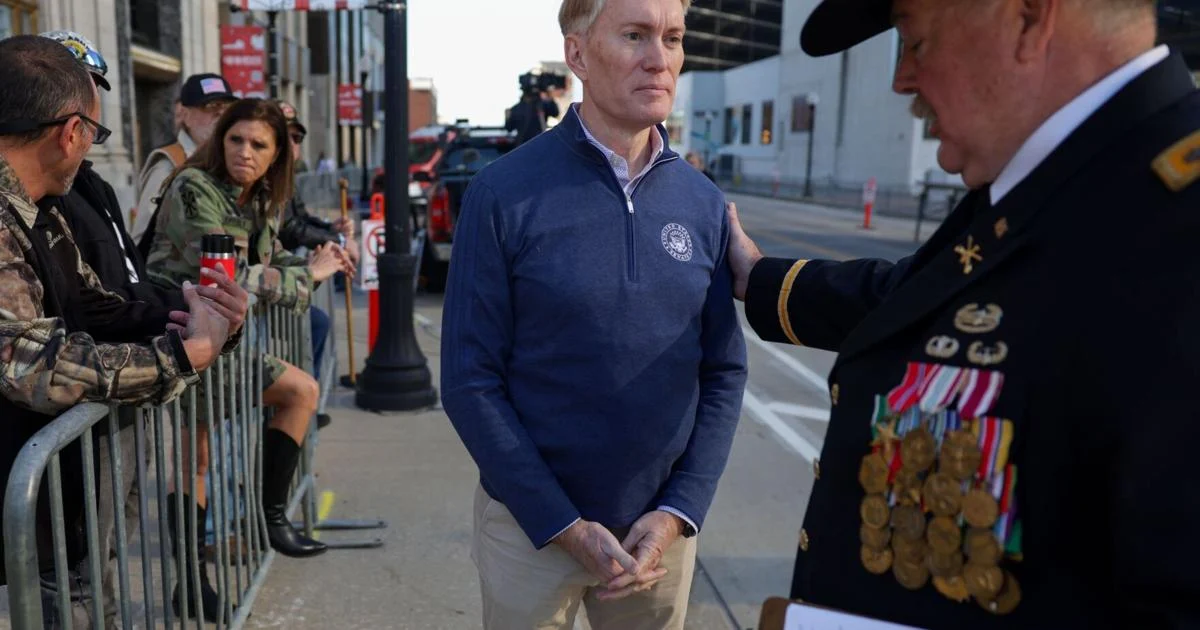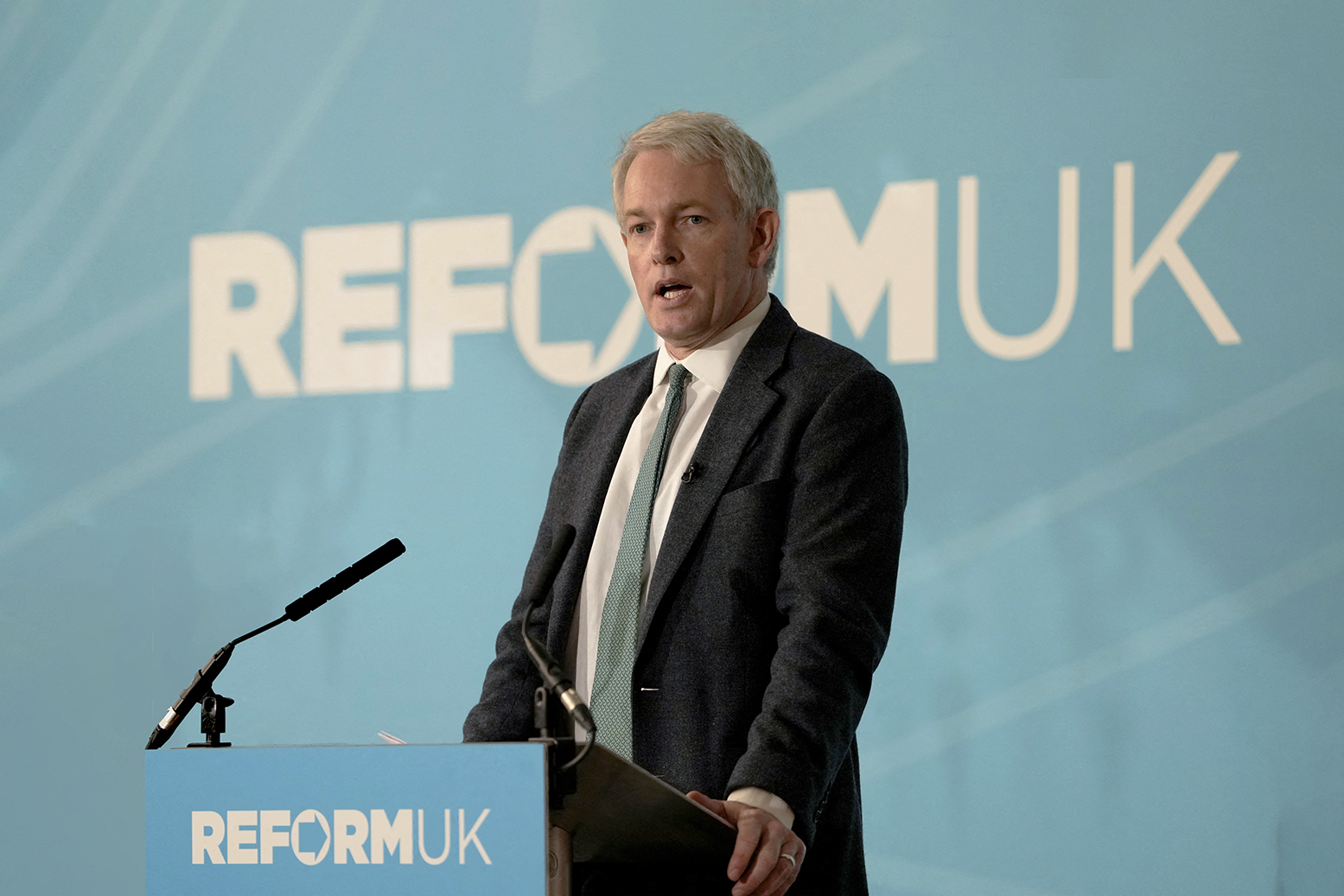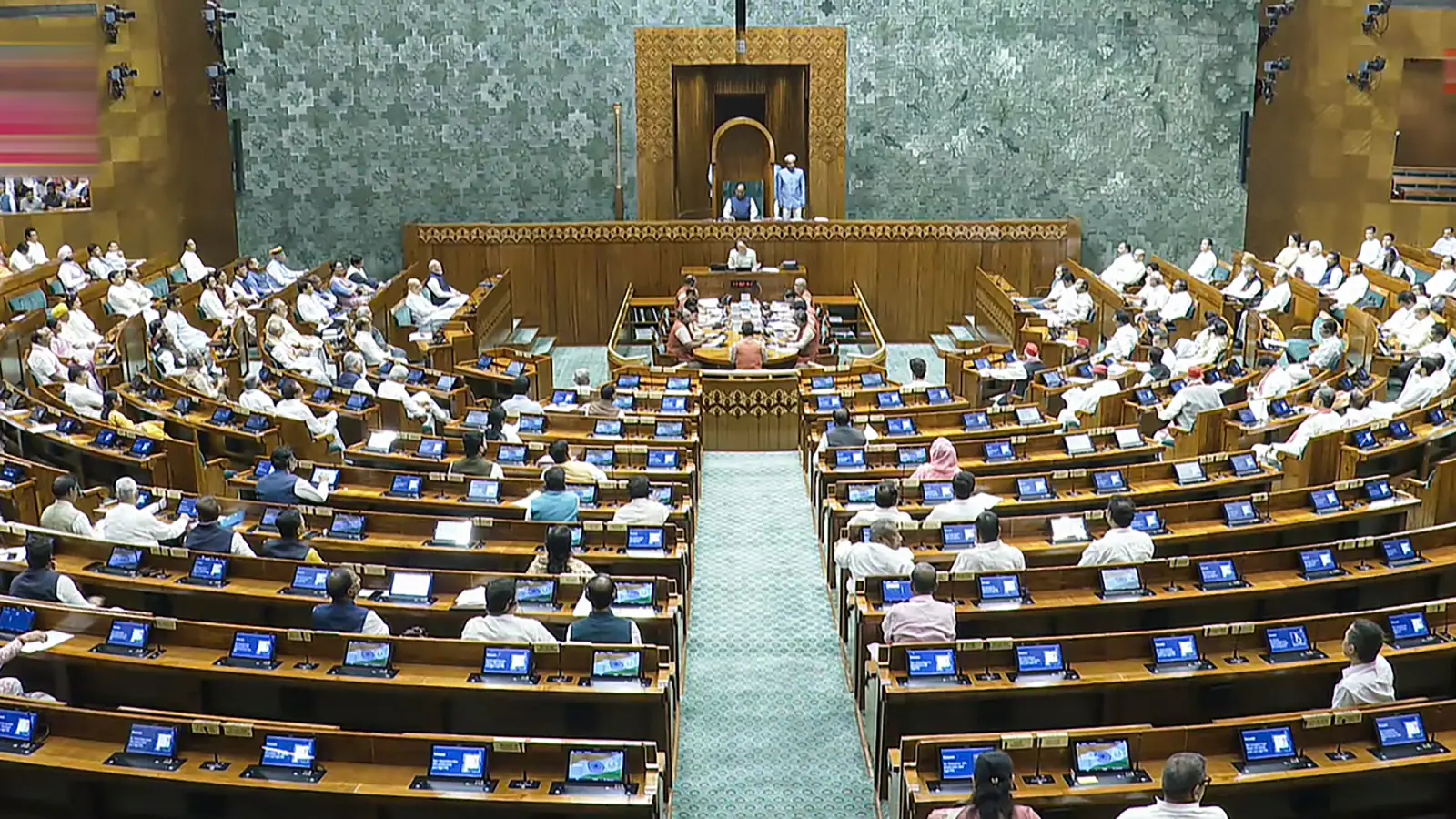
Ginnie Graham
Tulsa World Columnist
Get email notifications on {{subject}} daily!
Your notification has been saved.
There was a problem saving your notification.
{{description}}
Email notifications are only sent once a day, and only if there are new matching items.
Followed notifications
Please log in to use this feature
Log In
Don’t have an account? Sign Up Today
Among the things on the mind of U.S. Sen. James Lankford this week was the emotion of the nation — grief, anxiety, anger and helplessness. It was the first topic he wanted to discuss when he met with the Tulsa World Editorial Board.
Many Americans are tuning out and staying silent in this charged moment. That’s a mistake, says Lankford. But it’s also unproductive to be part of the shouting.
“Where we are is a cultural and spiritual issue, and we’ve got to figure that out. For people of faith, we need to be able to live our faith, all of it. Culturally, where we are in our families and communities, we must find our ways to be able to be engaged,” Lankford said.
Lankford visited with the Editorial Board on Tuesday and talked about issues ranging from a possible government shutdown to national cybersecurity threats to President Trump’s bombing of Venezuelan boats alleged to be operated by narco-terrorists.
He’s a detail-oriented official with a willingness to consider other opinions. He was the first to talk about the 1921 Tulsa Race Massacre on the U.S. Senate floor, and he promotes ways to bridge divides of race and religion.
That doesn’t mean our ballots look the same or I agree with even half his votes. Still, I usually find a few areas of agreement and appreciate the on-the-record conversation.
Much of our time was spent on the cultural shift that foments division. The nation’s rising temperature provides the thesis for his book, “Turnaround: America’s Revival,” released in April. It’s a mix of personal experience, Scripture and history as a guide toward finding common ground.
One chapter is dedicated to the corrosive nature of an anger-at-all-times expectation in politics.
“In D.C., the angrier and more caustic you are, the more people cheer for you, and the more press attention you get. More social media attention that day means more people donating to your campaign that night, which encourages you to say something even angrier the next day,” he states in the book.
“The cycle continues until you burn out, isolate yourself, or say something so incredibly foolish you lose your dignity, your support, and/or your family. Then the cheering crowd looks for someone else to entice to anger as they gossip about your political demise.
“Political anger is a poison that kills you and your relationships a little more each day.”
He makes this point in the chapter: “People who encourage more hatred are not making our nation better; they are providing justification to unstable people to do horrible things and inspiring stable people to commit irrational acts.”
These cautionary words may have been written more than a year ago, but they remain extraordinarily relevant.
More than 14,000 threats have been made against members of Congress so far this year, according to the U.S. Capitol Police. Attacks against state lawmakers have occurred in Minnesota and Pennsylvania.
Listen now and subscribe: Apple Podcasts | Spotify | Stitcher | RSS Feed | SoundStack | All Of Our Podcasts
Town halls have become more problematic for security. Reasonable discussion in those formats is difficult with performative, gotcha-like activists in attendance.
Social media serve to inflame because algorithms are meant to incite strong feelings. Political parties, politicians, think tanks, lobbyists and enemy countries pay people to argue in comment sections and populate sites with incendiary, misleading or untrue posts.
It’s not the real world, but it has real-world consequences.
The move toward civility isn’t as easy as telling the provocateurs to knock it off. Those are people with vested interests — almost always money — in keeping up the bombastic claims.
Lankford believes it will take the people who have opted out to back into the fold and exert more influence.
“You’re not going to be louder, but there should be more of you,” Lankford said. “There are more Oklahomans who say that we have to solve this. There’s volume and then there’s quantity. I look for the quantity of people, and there is plenty on both sides who want to figure this out. …
“For those other voices, they may need to turn up the volume a little bit — just the number of people who are being quiet to step up and say, ‘There’s something different that we can do on this.’”
Lankford sits on the Senate Select Committee on Intelligence and says about a third of its time is spent discussing cybersecurity threats. The other classified information he likens to a scene from the “Men in Black” movie in which a character realizes the world is always about to end.
“We’re still as a nation facing jihadi terrorism internationally. There are still groups that are actively planning to kill us,” he said.
So why are Americans spending so much time tearing each other apart? This certainly makes the work of enemy states easier.
Getting back to celebrating bipartisan work — once an expectation of elected officials — is a path back to fixing our problems.
Far ends of political parties have taken an all-or-nothing attitude. Lankford has been targeted by members of his party for working across the political aisle.
He sought to calm tensions after the assassination of conservative figure Charlie Kirk, appearing on CNN’s “State of the Union” with Dana Bash. He acknowledges the shock, pain and anger people feel but also warns against growing violence.
“When there’s a fire, you pour water on it, not gasoline,” he said. “We have to keep talking about things to work that out.”
He says among his colleagues working to ease tensions are Sens. Tim Scott, R-S.C., Steve Daines, R-Mont., Chris Coons, D-Delaware, and Peter Welch, D-Vermont. He developed a friendship with Sen. Mark Kelly, D-Arizona, after the assassination attempt on his wife, former Rep. Gabby Giffords.
“I’m a conservative Republican, and I have Democrat friends who think very differently and vote very differently. But they are still my friends,” Lankford told Bash. “Just having an ideology or beliefs that are different from other Americans is not illegal. That’s America.”
ginnie.graham@tulsaworld.com
Subscribe to Daily Headlines
* I understand and agree that registration on or use of this site constitutes agreement to its user agreement and privacy policy.
Catch the latest in Opinion
Get opinion pieces, letters and editorials sent directly to your inbox weekly!
* I understand and agree that registration on or use of this site constitutes agreement to its user agreement and privacy policy.
Ginnie Graham
Tulsa World Columnist
Get email notifications on {{subject}} daily!
Your notification has been saved.
There was a problem saving your notification.
{{description}}
Email notifications are only sent once a day, and only if there are new matching items.
Followed notifications
Please log in to use this feature
Log In
Don’t have an account? Sign Up Today



